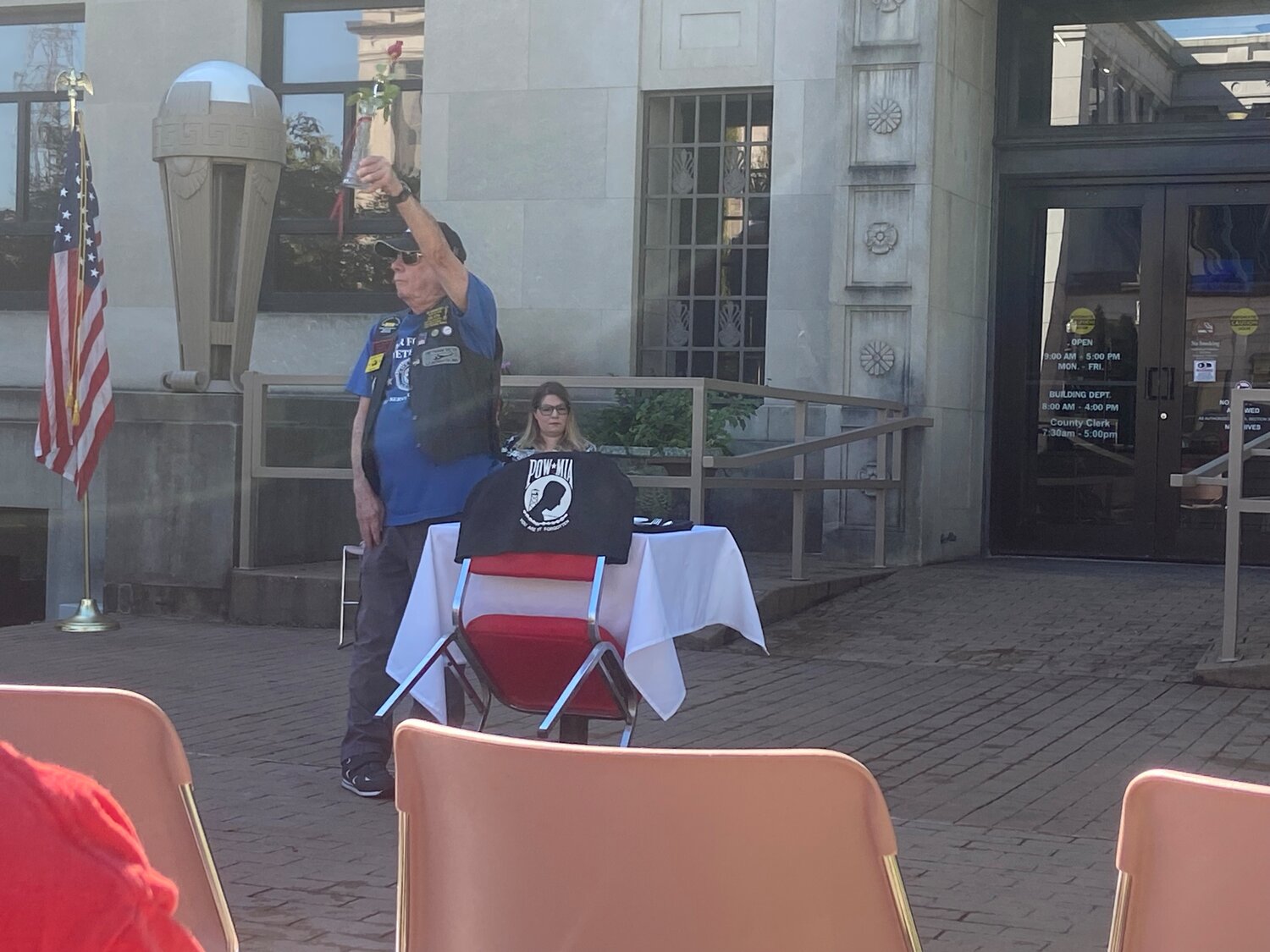MIA/POW soldiers honored at Courthouse
The third Friday of September has been the official day for our nation to recognize prisoners of war and those missing in action since Jimmy Carter was President.
Ever since, every President has signed a proclamation ensuring that day continues to be recognized as National POW/MIA Recognition Day.
The Madison County Courthouse was the site of a local recognition.
“We’ll take every occasion we can to remember those that have served or are serving in our armed forces,” said County Mayor A.J. Massey. “This dav serves as the day to acknowledge the resiliency of the individuals who have been prisoners of war or have been missing in action and the resiliency of their families who sometimes never find a final answer about their loved one.
“The sacrifice of all those involved will never be forgotten.”
Jackson Mayor Scott Conger was on hand to read a joint proclamation.
“All Americans should acknowledge the debt we owe and the pain and bitterness of war experienced by those still awaiting the return of their loved ones,” Conger read from the proclamation.
After that, there was a presentation of the Missing Man Table, which is full of symbolism for military members to remember those that haven’t returned from conflict overseas.
According to statements read by Larry Newsome, a local Vietnam veteran, official for the West Tennessee Veterans Coalition and member of the local chapter of the Sons of the American Revolution, the table is small enough for one to sit, symbolizing the isolation of an absent service member.
The table is first set with a white tablecloth to represent the pure intentions of the service member, and on that tablecloth is a single rose in a case to symbolize the blood service members have shed to ensure freedom for all Americans.
There’s a bread plate on the table with a single slice of lemon on it, representing the bitter fate of those missing.
Salt is sprinkled on the bread plate to represent the tears shed by families at home.
An inverted wine glass sits on the table to represent the fact the missing are unable to partake of the meal and drink.
There’s a lit candle that symbolizes the hope that lives in the hearts of those missing to illuminate the missing person’s way home, and the empty chair at the table represents the absence of those missing or fallen.
Brandon Shields, brandon@jacksonpost.news






